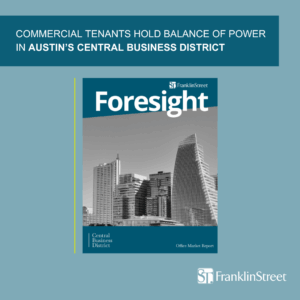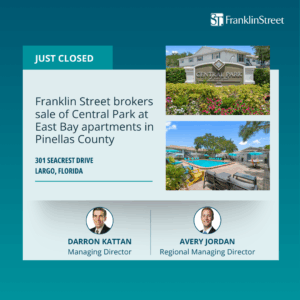Excerpted from Retail Environments story.
When retail and restaurant groups expand, important deal terms are often overlooked. During the Letter of Intent (LOI) and lease negotiation process, every tenant should be aware of five critical protections:
1. Require the landlord’s lender to sign a Subordination, Non-Disturbance and Attornment Agreement (SNDA). An SNDA agreement protects you as a tenant if the landlord defaults on the mortgage. If the lender signs an SNDA, then the lender does not have the right to cancel the lease if the landlord defaults on the mortgage. Many tenants discovered during the 2008 economic crisis that they did not have this protection in place. Most landlords and lenders comply with the request for a SNDA agreement.
2. CAP the year-to-year increase on CAM/insurance/taxes passthrough. It is important to negotiate a cap on the year-to-year increase of CAM/insurance/tax charge specified in the lease. If the property is sold or if you substantially increase the value of the property, a tax reassessment can be expensive. Without a cap on these expenses, you can get hit with a hefty additional expense in the amount of CAM/insurance/taxes you pay throughout the remainder of the lease.
3. Protect yourself against unexpected permitting. The Rent Commencement Date is the date that you are required to start paying rent per the terms of the lease agreement. Once you sign the lease, you must hire consultants to design the space, submit the plans to the governmental authority, and obtain all necessary inspections and permits to open for business. Although you can do everything in your power to obtain the permits as quickly as possible, some conditions are out of your control. Factors such as adjusted governmental holiday schedules, re-review of plans, and existing space conditions (power, unexpected roof leaks, etc.) can cause delays in permitting. When negotiating the Rent Commencement Date for the tenants I represent, my initial LOI includes a buildout period timeframe that does not start until the tenant receives their permits. This protects against the tenant having to pay rent before being able to open for business.
4. Set up payment installments for your Tenant Improvement (TI) allowance payments from the landlord.Most tenants only focus on the amount of tenant improvement dollars they are given by the landlord to complete their buildout. When working with large TI amounts, have your broker negotiate a payment structure that will allow you access to the TI funds during the design and buildout process. I have had success negotiating quarterly payments, so the tenants can “draw” down the total TI amount and have access to the funds to pay consultants and contractors during the process. Most LOIs do not address this, so the tenant is stuck having to fund a large TI amount out of pocket during the buildout process.
5. Limit your Lease Guarantee. Most landlords require the tenant to sign a Lease Guarantee, guaranteeing the initial term of the lease. It is the tenant broker’s job to limit the Lease Guarantee as much as possible during negotiations. Offering limited guarantees for just a portion of the initial term is one option that covers any TI given and provides a timeframe for the landlord to release the space.
Bob Kane is a director with Franklin Street’s Retail Tenant Leasing team in Atlanta, offering program rollout strategies, site selection, market analysis, and lease/purchase negotiations for national and regional retailers and restaurant groups expanding throughout the Southeast. He has represented national, regional, and local retail and restaurant groups for 15 years, providing brokerage, development, and consulting services to such retailers as Home Depot, Kohl’s, Longhorn Steakhouse, McDonald’s, Aldi, and Lowe’s.
For full story, visit https://insights.retailenvironments.org/2019/05/16/5-protections-you-need-with-your-retail-leases/



